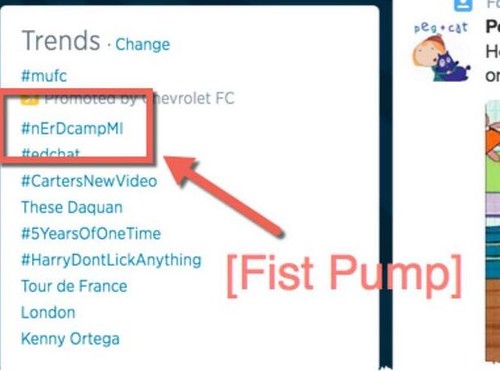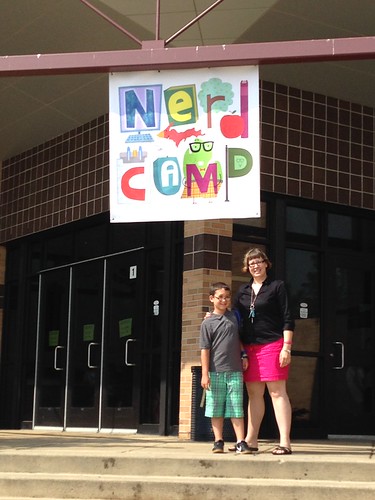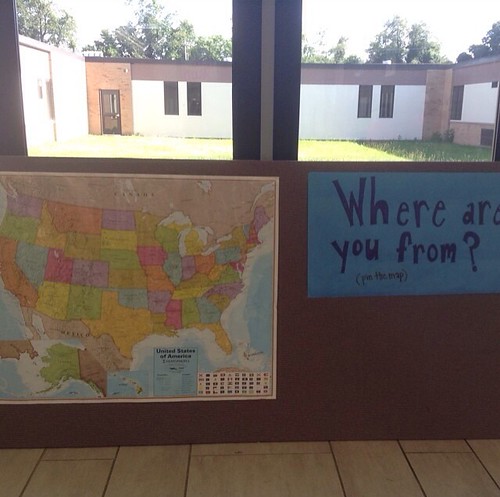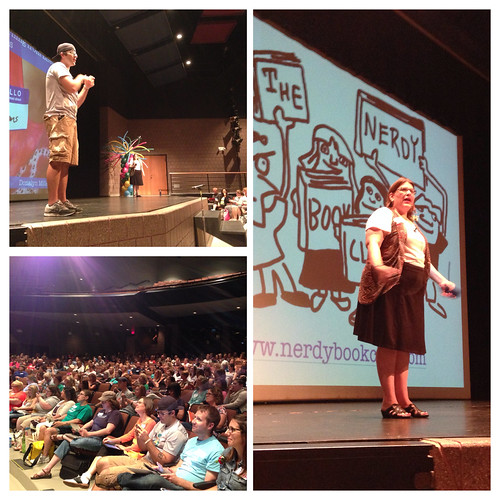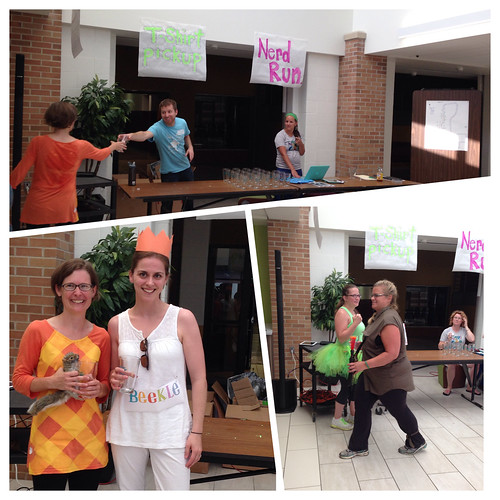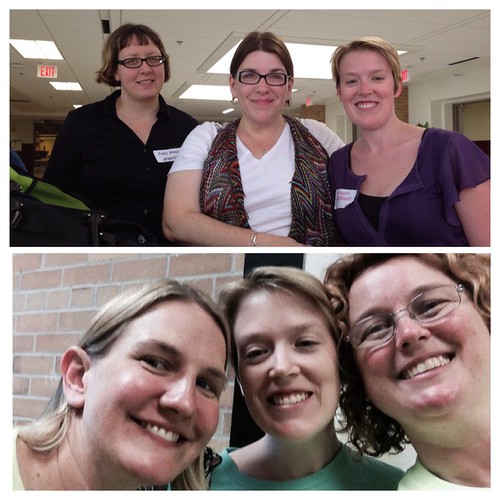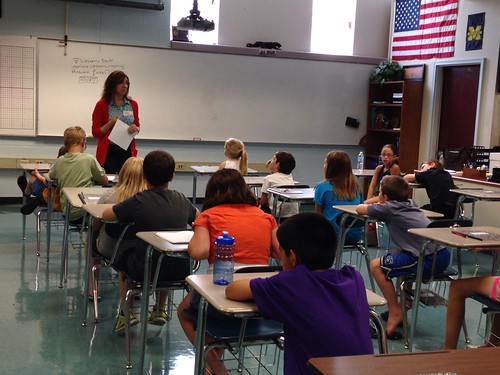Working with all those passionate, proactive voices in the room reinforced in me the need for educators to speak up and speak out against the ways teachers are framed by the public.
Since the material was condensed, I will give you a shortened, bullet-pointed version of the things I learned, or had reinforced in the past two days:
- There is another narrative of education out there other than what the popular media is selling and we as educators need to work to have that narrative heard.
- Marshall Ganz developed the concept of public narrative -- the story of self, the story of us, the story of now -- as an impetus for advocacy (to see a perfect example of public narrative at play, watch Obama's 2004 speech at the Democratic National Convention).
- Change starts with a single story (the story of self) and finds a way to relate that story to others (the story of us) in order to appeal an urgent need to the public (the story of now).
- How we frame our issues to the public is important in how we are perceived -- taking an affirmative (rather than a negative) stance is always preferred.
- Once you have an issue and know how to frame it, it's important that you cut that issue into something smaller and more manageable. For example, if your issue is the negative affects of standardized testing, which is a huge issue with many different angles, a way to cut the issue is to appeal to parents that it takes away too many weeks of valuable instructional time.
- As hopeful and idealistic teachers, we want to tackle Big Topics, but starting small and gradually working toward making bigger change is a better strategy and more likely to lead to success.
I shamefully admit I was really struggling with an issue I wanted to tackle in this workshop. I had a mind block that, "Well, I already did all of this in a semester-long class so I don't need to do it again," which was a really unproductive way of thinking since the last time I checked, the vitriol aimed at teachers these days is still going strong, if not getting worse. So I owe it to my profession to speak up and speak out.
Once I got passed that mind block and started to talk to my fellow workshop attendees, as well as a great conversation I had with our fearless leader, Cathy Fleischer, I decided that I wanted to tackle the topic of the need for administrators to see the importance of autonomous professional learning for teachers. In my role as social media coordinator at NCTE, I see this as an important issue because I know that so many teachers pay their own way to annual convention despite the fact that registration, transportation, and room and board is REALLY expensive on a teacher salary. But teachers pay those expenses because they know what a valuable experience it is to attend. I would like administrators to see why teacher-led PD as well as PD that teachers seek out on their own is much more valuable than district-mandated PD.
One of our tasks in this workshop (along with the class I took last year) was to create an "elevator speech." A 30-60 second quip about our issue and why it's important. Learning to be succinct can be a challenge when you're taking about a topic you are passionate about, so this was definitely a difficult but worthwhile exercise. This is what I came up with for my elevator pitch:
An empowered, knowledgeable faculty leads to a student population that sees the value of education beyond the classroom. Part of the formula in empowering teachers is to not only give them autonomy in their classrooms, but in their professional learning as well. Rather than looking at professional development as an expense, what if we instead approached it as an investment? (1) The question many administrators might have then is, "What if we invest in these teachers and they leave?" My question to you however is "What if we don't and they stay?" (2)
Overall, the workshop was not only worthwhile but also encouraging to see so many educators who felt like they now have the tools to make their voices heard. As stated above, there is another narrative of education that deserves and NEEDS to be heard and we, the educators, need to tell it.
(1) Miller, Donalyn and Susan Kelley. Reading in the Wild: The Book Whisperer's Keys to Cultivating Lifelong Reading Habits. San Francisco: Jossey-Bass, 2014.
(2) I wish I could take credit for the cleverness of this last line, but I actually stole it from this tweet from Sharon Porter.


